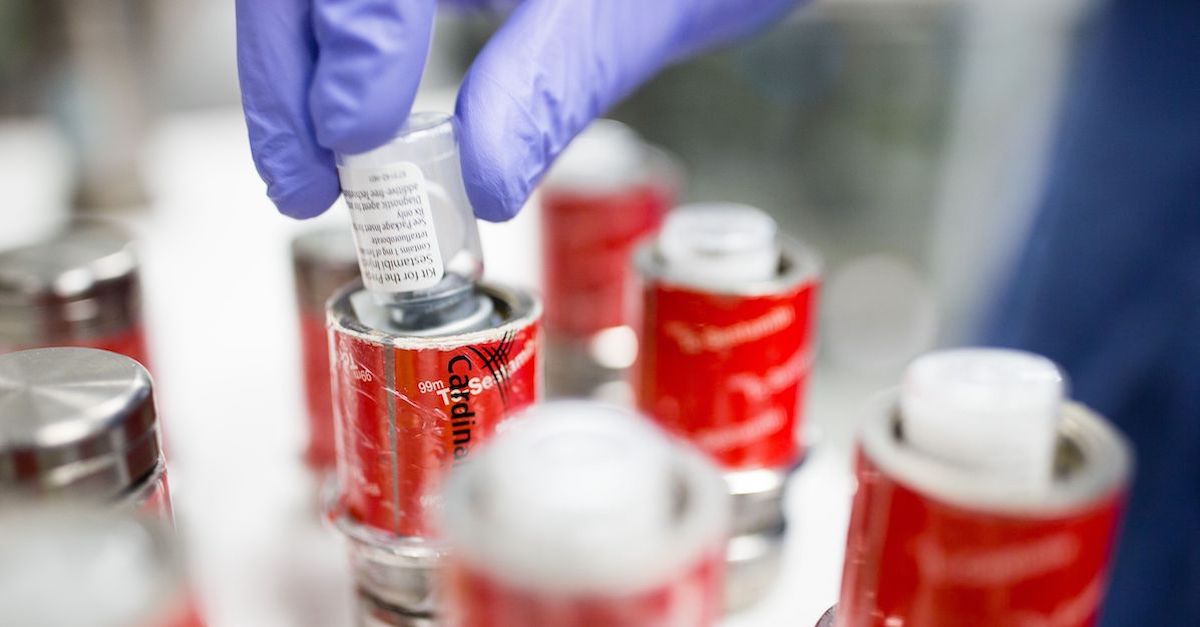Cardinal Health MarketSM
The legacy Cardinal.com Medical Ordering site has been replaced with Cardinal Health MarketSM, a new product experience designed with you in mind.

About 20 million nuclear medicine patient procedures are performed every year in the U.S. They are used to help diagnose, evaluate and treat a variety of diseases, including cancers, heart disease and neurological disorders.
“Nuclear medicine is key to the practice of precision medicine, providing important tools for designing individualized treatments for patients based on their genetic makeup,” said Mike Pintek, president of Cardinal HealthTM Nuclear & Precision Health Solutions (NPHS), which develops, manufactures, prepares, dispenses and delivers the radiopharmaceuticals used in nuclear medicine.
According to Fortune Business Insights, the global nuclear medicine market is expected to double within the next several years, growing from more than $5.5 billion in 2021, to $11 billion by 2026.
“This is a really exciting time to be in this business,” Pintek said. “Innovations are changing the nuclear health industry almost every day. In some cases, nuclear medicine has the ability to treat diseases that were once considered not treatable, significantly improving the quality of patients’ lives.”
Pintek leads a team of 3,000 employees who are driving advancements within this highly-innovative, complex business. His team includes nuclear pharmacists, chemists, engineers, specialized sales and marketing people, and delivery personnel who are trained in the sensitive handling of radioactive medicines.
“We manufacture, prepare and dispense diagnostics and therapeutics for clinical trials, help manufacturers gain FDA approval, and commercialize approved products, making them available to providers and patients,” Pintek said. “Over the past 50 years, we have built tremendous expertise in this specialized field.”
Nuclear medicine 101: How it works
As general background (procedures vary), nuclear medicine procedures use a radionuclide that emits radiation. Some radionuclides can be bound to a stable molecule or compound to make a radiopharmaceutical. Other radionuclides may be in the form of a gas. Depending on the radiopharmaceutical, administration may be by injection, inhaled as a gas, or ingested. The radiopharmaceutical can be targeted to a specific organ or tissue, where it emits its radiation.
The practice of nuclear pharmacy (also called radiopharmacy) is focused on preparing and dispensing patient-ready, unit-dose radiopharmaceuticals directly to a hospital or imaging center to administer to the patient. Time is critical in moving the radiopharmaceuticals from the pharmacy to the patient, Pintek said, because each radionuclide has a specific rate of decay, or half-life. “We’re dealing with nuclides that behave like melting ice cubes. With some radiopharmaceuticals, we may have as few as 60 minutes to get the medicines to care providers to administer to their patients.”
Some radiopharmaceuticals are used to diagnose or stage cancer, find thyroid disease, or evaluate blood flow to the heart. Others are used to treat hyperthyroid and thyroid cancer, non-Hodgkin’s lymphoma, or prostate cancer. The specific disease determines what radiopharmaceutical is used for diagnosis or treatment.
Theranostics (a blending of “therapeutics” and “diagnostics”) is the term used to describe the combination of one radiopharmaceutical to diagnose a disease and a second radiopharmaceutical to deliver therapy to the disease. Currently, these are most often used to treat thyroid cancer, prostate cancer, and neuroendocrine cancer.
Theranostics is driving much of the rapid growth in the nuclear medicine industry, Pintek said. To keep up with that growth, Cardinal Health has made a significant investment in building out the NPHS Center for Theranostics Advancement in Indianapolis, Indiana.
Helping accelerate the development of theranostics
Through the Center, NPHS supports both established and emerging pharmaceutical companies from innovation and development through manufacturing, Pintek explained. “The Center allows us to support our customers at every stage of the product lifecycle. We might help support a pharmaceutical innovator’s development of a new radiopharmaceutical, perform early feasibility studies for a new drug, manufacture a radiopharmaceutical on a small scale for clinical trials, or, farther along the innovation lifecycle, establish large-scale production and distribution.”
Three facilities make up the Center for Theranostics Advancements:
“These are truly state-of-the-art, secure facilities that include lab space, microbiology quality control testing products, and more than 28,000 square feet that can be custom-built for various kinds of radiopharmaceutical manufacturing,” Pintek said. “It’s very sophisticated, and represents the future of nuclear medicine.”
Over the past 50 years, NPHS has achieved several industry firsts:
Today, NPHS serves more than 6,600 customers, including pharmaceutical innovators, hospital nuclear medicine departments, and cardiology and oncology clinics. The team dispenses and distributes more than 12 million patient-ready, time-critical radiopharmaceutical doses every year.
In addition, NPHS has developed a proprietary suite of innovative technologies that helps ensure efficiency, accuracy and patient safety in distributing these life-changing medicines. “These technology solutions allow us to deliver the right dose to the right patient at the right time – every time,” Pintek said. “From the moment we receive an order to the time that it’s administered to the patient, we know exactly where the dose is.” The result, he said, is a 99.99% dispensing and labeling accuracy rate and a greater than 99% on-time delivery rate.
Looking ahead
The future of nuclear medicine is very bright, Pintek noted, both for the industry and for the patients whose lives it will change. “I have spent most of my career in the health care industry, and I have never been as energized and optimistic about what’s ahead as I am today. There is amazing potential in nuclear and precision medicine. And we are only just beginning to realize the possibilities.”
Looking ahead, he said, “I’m excited about the work that our team is doing together – continuing to expand our expertise and our capabilities, advancing the work of pharmaceutical innovators, and, ultimately, helping bring new diagnosis, new treatment, and new hope to more patients. I can think of nothing better than that.”